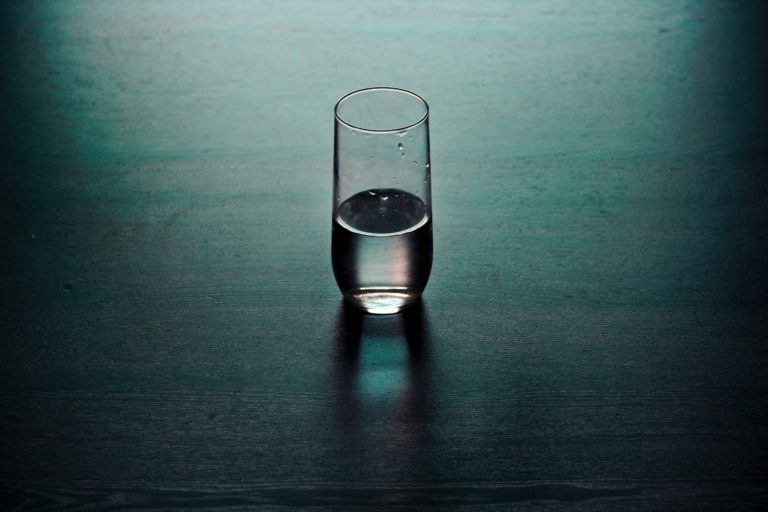Waterkeepers: Protectors, Safeguards, Caretakers of Great Lakes Drinking Water
By: Grand Traverse Baykeeper

By Grand Traverse Baykeeper Heather Smith
The time to fight for clean and healthy Great Lakes drinking water is now.
The mighty Great Lakes. The largest freshwater system on the planet. These lakes represent more than one-fifth of the world’s supply of fresh surface water. The Great Lakes are so sweeping, so magnificent in size and splendor. They play a vital role in shaping the landscape, influencing the weather, driving the regional economy, and dictating the area’s fauna and flora. They have an immense natural, historical, cultural, and spiritual significance for those that live within the Great Lakes basin.
The Great Lakes are used in transportation, power generation, recreation, and host a dynamic sport, commercial, and tribal fishery. These lakes support one of the world’s largest regional economies, including a $7 billion fishery and $16 billion tourism industry. Nearly 40 million people rely on the Great Lakes for their drinking water. This is a treasure worth protecting. Worth safeguarding. Worth taking care of.
The Great Lakes are facing very real threats that have the potential to significantly degrade our water quality and negatively impact human health, aquatic ecosystems, and our regional economy. These include untreated stormwater, invasive species, toxins, hazardous waste, aging and failing infrastructure, nutrients and excessive algal growth, crude oil transport, herbicides and pesticides, and combined sewer overflow systems. These issues are further exacerbated by poor land use decisions, the destruction of natural shorelines and coastal wetlands, and an uncertain climate future.
We are just beginning to understand how a host of emerging contaminants are impacting human health and healthy ecosystems. These contaminants include pharmaceuticals and personal care products, microplastics and microfibers, and per- and polyfluoroalkyl substances, to name a few. Many of these pollutants are not routinely monitored in our drinking water and most of our treatment systems are not designed to remove these pollutants, which exemplifies the immense threat they pose to the health of our lakes and our people.
But there is good news. There are a number of organizations, agencies, citizen advocates, volunteers, educators, and researchers working hard to protect Great Lakes drinking water and preserve Great Lakes ecology. I have the honor of being the Grand Traverse Baykeeper that advocates for clean water in the 1,000-square mile Grand Traverse Bay watershed in northern lower Michigan. I work at the local level to protect water quality in our bay and am a tireless guardian of the Great Lakes. One of my newest initiatives includes activating a grassroots network of citizen advocates that are taking a stand for clean Great Lakes drinking water.
I am one of a handful of Waterkeeper groups speaking up for the Great Lakes. As Waterkeepers in the Great Lakes region, together we fight for drinkable, fishable, swimmable Great Lakes. We collectively advocate for practices that protect our water, preserve and restore our aquatic ecosystems, and monitor and educate about our mighty Great Lakes. We are the protectors, safeguards, and caretakers of this beautiful freshwater system.
This year, along with the support of the Waterkeeper Alliance, Great Lakes Waterkeepers are embarking on a #drinkablegreatlakes campaign focused on source water protection and communicating the value of the Great Lakes and their watersheds. This effort will strategically focus on advocacy, policy, outreach, and communication efforts to protect our shared Great Lakes drinking water. We will promote public understanding and appreciation of the Great Lakes and the growing number of threats to our water through coordinated and consistent messaging. We will advocate for policies and decisions at the local, state, and federal levels that protect drinking water and ensure that water quality is a top priority among decision makers. We will provide technical expertise and share our knowledge with local governments to ensure policies and practices are informed by the latest science and are protective of human health. We will work to protect our Great Lakes drinking water from water diversions and consumptive uses that jeopardize water quantity and quality.
Please support #drinkablegreatlakes by visiting our website www.drinkablegreatlakes.wee.green. By purchasing eco-friendly goods, a portion of your sale will go towards supporting clean and safe drinking water in the Great Lakes. While visiting this website, you can also learn more about how you can get involved in the #drinkablegreatlakes campaign by being an advocate, volunteer, or educator. The threats are real. The threats are here. The time to fight for clean and healthy Great Lakes drinking water is now.